Some writers are self-taught. I’m really, really not one of these. I’ve taken a lot of — perhaps too many — writing workshops. I majored in English writing as an undergrad, then got a PhD in creative writing — and apparently all that still wasn’t enough, because I’ve also taken a bunch of one-off writing classes all over town!
Single creative writing classes can be great for a lot of reasons: if you have no idea what you’re doing and need some direction from a mentor, if you’re not ready to commit an MFA program but need something structured to move your writing along, if you’re working on a specific writing project and want feedback on it from a group of writers, if you have a tough time motivating yourself to write without deadlines.
There are countless writing workshops offered on the internet, but I’ve stuck to on-ground classes for this post, assuming that if you’re reading a post specific to Los Angeles, you’re interested in meeting up with fellow Angelenos IRL. Here are five options to consider:
____
UCLA Extension Writers’ Program.
You’ll really feel like you’re back in school if you sign up for a UCLA Extension class, which are held on the Westwood campus in actual classrooms, complete with chalkboards. Fiction, creative nonfiction, poetry, and screenwriting classes are offered — as well as weekend intensives and shorter workshops. Many classes are open to all; some of the intermediate or advanced classes require you to submit sample writing to be considered for admission.
Some of the classes I’ve taken here have been great, some kind of a waste of time. I recommend reading your potential instructor’s books before plunking down the money for the course — though even then, it’ll be a bit of a crapshoot. Then again, isn’t that true of anything in life?
Each class is limited to about 15 students; past and present instructors include Ben Loory (Stories for Nighttime and Some for the Day) and Antonia Crane (Spent). A 10-week Introduction to Novel Writing class costs $699. UCLA Extension also offers certificate programs — the value of which I have a hard time understanding (why not just do an MFA then?) but which may appeal to you.
Writing Workshops Los Angeles.
Taking a WWLA class feels a bit like going over to a friend’s house — because these workshops are taught out of the instructor’s homes. Enjoy snacks and coffee or wine at these eight-week courses on fiction, nonfiction, poetry. You can also sign up for one to two-day seminars.
I’ve taken one fiction class with WWLA. It was more basic than what I was looking for at the time, but I enjoyed my time there and liked the people I met — a warm, supportive environment, especially for beginning writers.
Past and present instructors include Bernard Cooper and Margaret Wappler (Neon Green). One thing to note is that a significant number of WWLA instructors haven’t published a book — something to consider if you’re hoping for mentorship and guidance on the book publishing process. An 8-week Novel 1 class costs between $380 to $420.
This writing school offers one-day to 10-week classes ranging from more traditional short story and novel workshops to screenwriting and blogging bootcamps.
Writing Pad hosts occasional panels and events too. In fact, I found out about the school when a friend invited me to one of these; a handful of storytellers told hilarious tales about real-life experiences they’d gone through. I’ve never taken a class, but have heard good things — Many classes are capped at around 10 students, and take place in one of two locations: Writing Pad East in the Arts District, or Writing Pad West in Rancho Park. Past and present fiction instructors include Lauren Strasnick and Steph Cha (Dead Soon Enough). A five-week Novel 1 class costs $425.
Santa Monica College creative writing class.
As a California resident you can take legendary creative writing teacher Jim Krusoe’s 16-week workshop at Santa Monica College for less than $200.
Jim’s the author of The Sleep Garden, Girl Factory, and Toward You, among other books, and his SMC classes — voted Best Writing Class by LA Weekly in 2012 — are open to all, at least until they fill up. Check the latest class schedule to find out when he’s teaching next. Detailed instructions for signing up are on this post.
Looking for something less structured? Local literary nonprofit Beyond Baroque offers free weekly community writing workshops in fiction, poetry, and screenwriting at its historic Venice location. Drop by any week at the appointed time to get your work workshopped with fellow community writers led by a local writer-instructor.
Of course, since it’s a free, come-if-you-want type deal, you won’t get the same type of continuity you would with more formal, weeks-long classes. Each workshop will be a new adventure! And some of the instructors Beyond Baroque pulls in are pretty amazing; I went to a few of these a long, long time ago — and got to study with poet Will Alexander.
Donations are suggested. Beyond Baroque offers what it calls Professional Workshops too. For these, offerings vary widely in structure, as does the cost. (Earlier: 5 ways to give back to literary nonprofits in Los Angeles)
____
There are many, many other small organizations and individuals in Los Angeles who offer all types of writing workshops — as well as writing coaching and editing services. If you’re interested in working with a specific local writer, try looking them up online; many teach, coach and edit.
And of course, you can always join a Meetup writing group or organize your own writing workshop. Don’t know enough writers to pull together your own group? Make some friends at these Los Angeles writing meetups where you can write in company.
Originally published 1/12/17; last updated 1/10/19


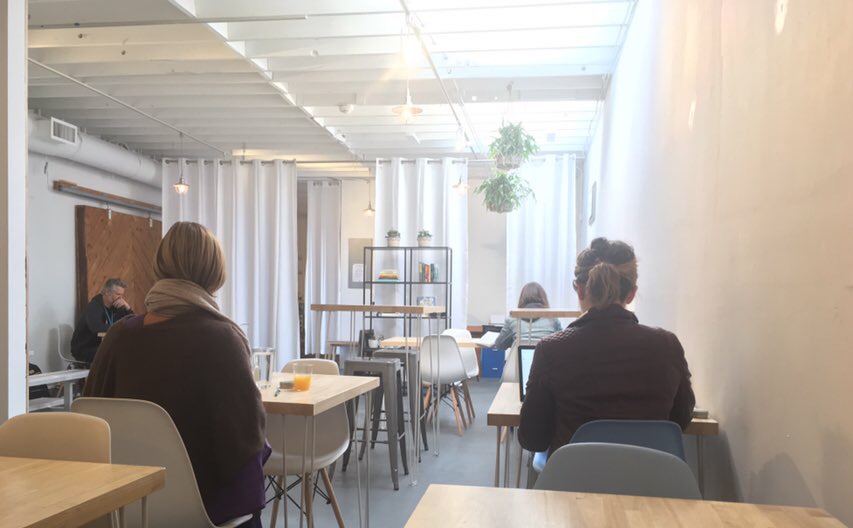
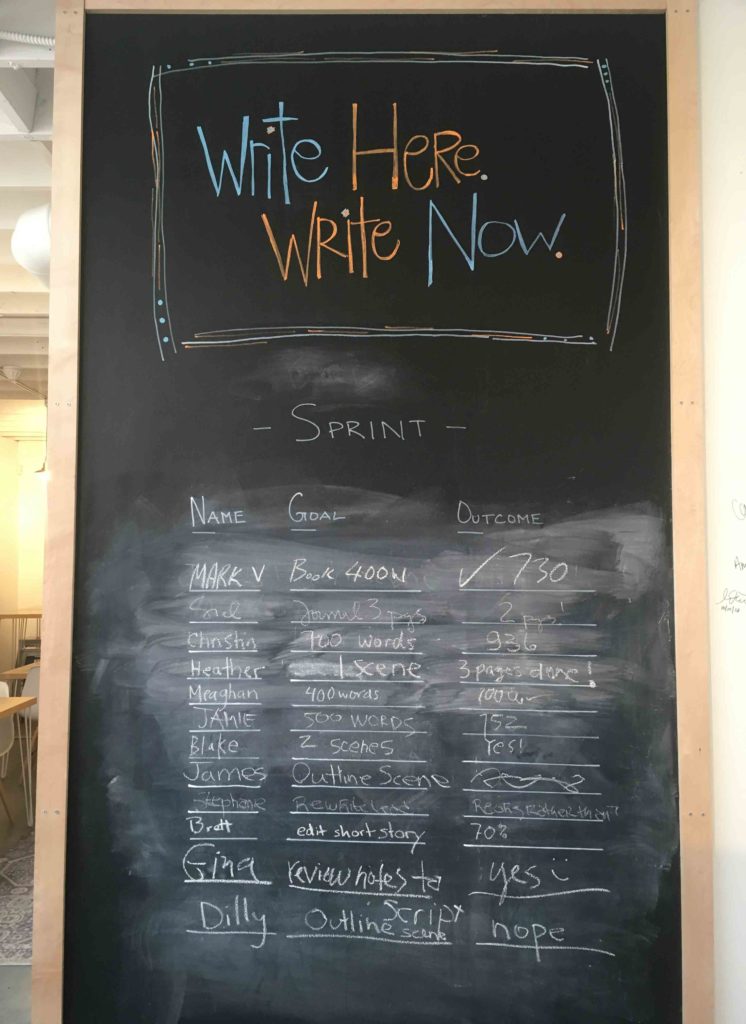
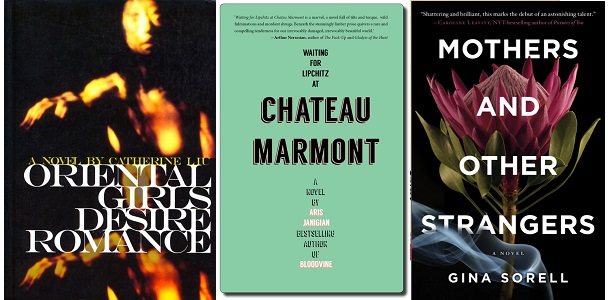
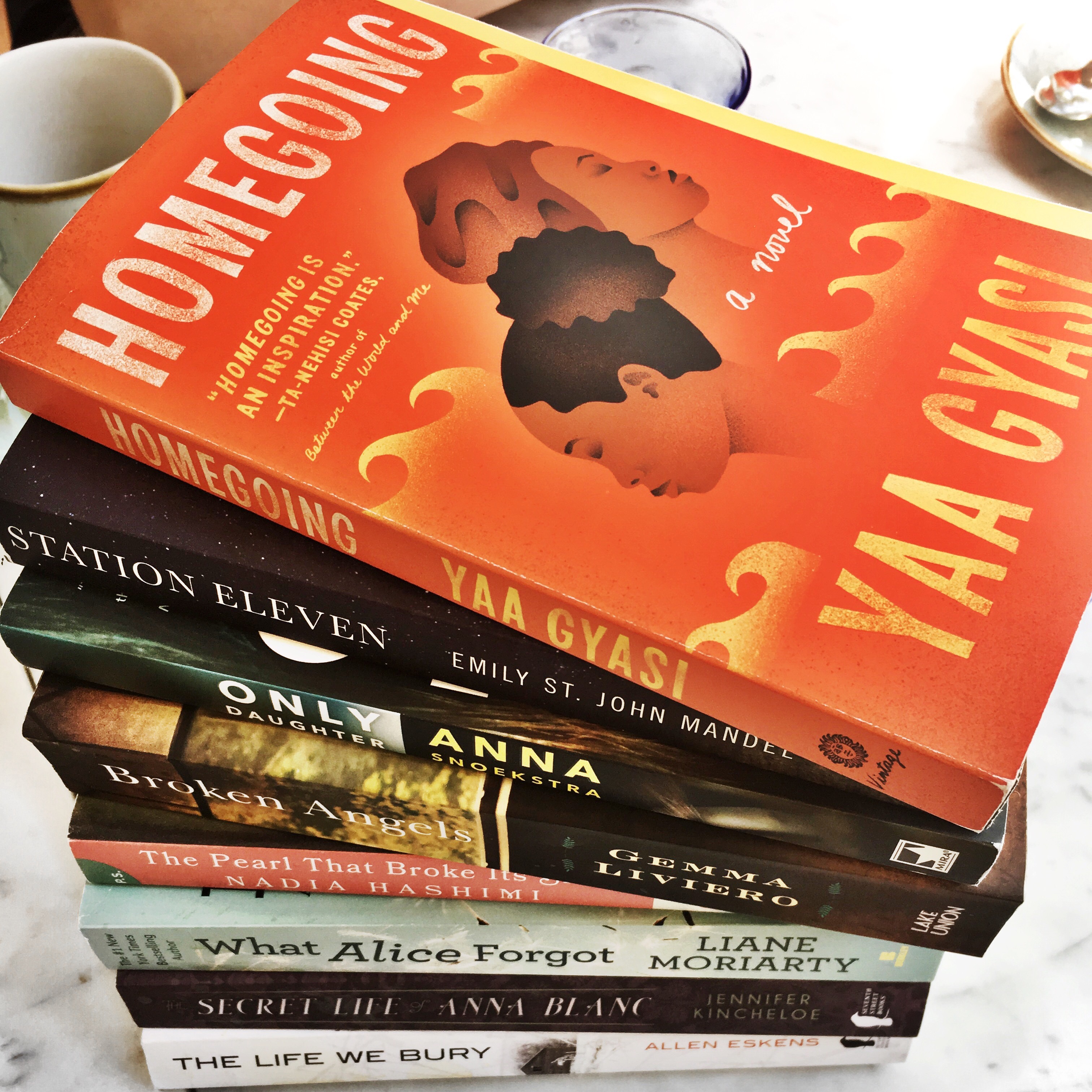
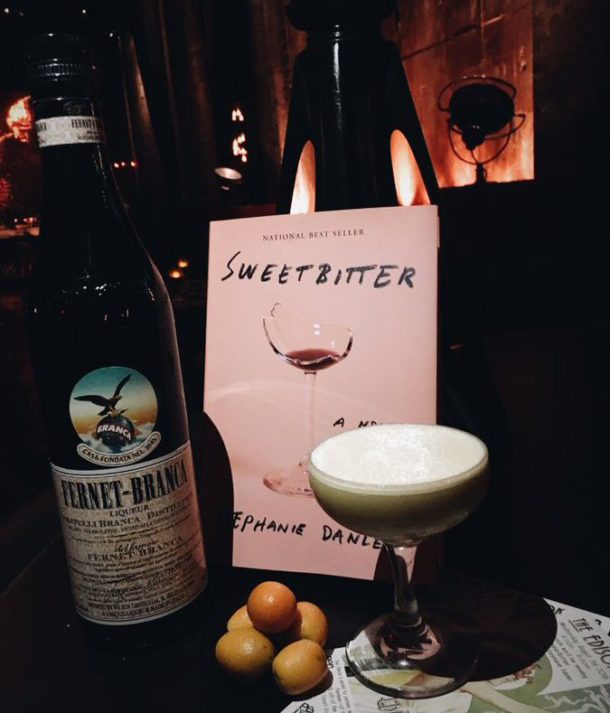
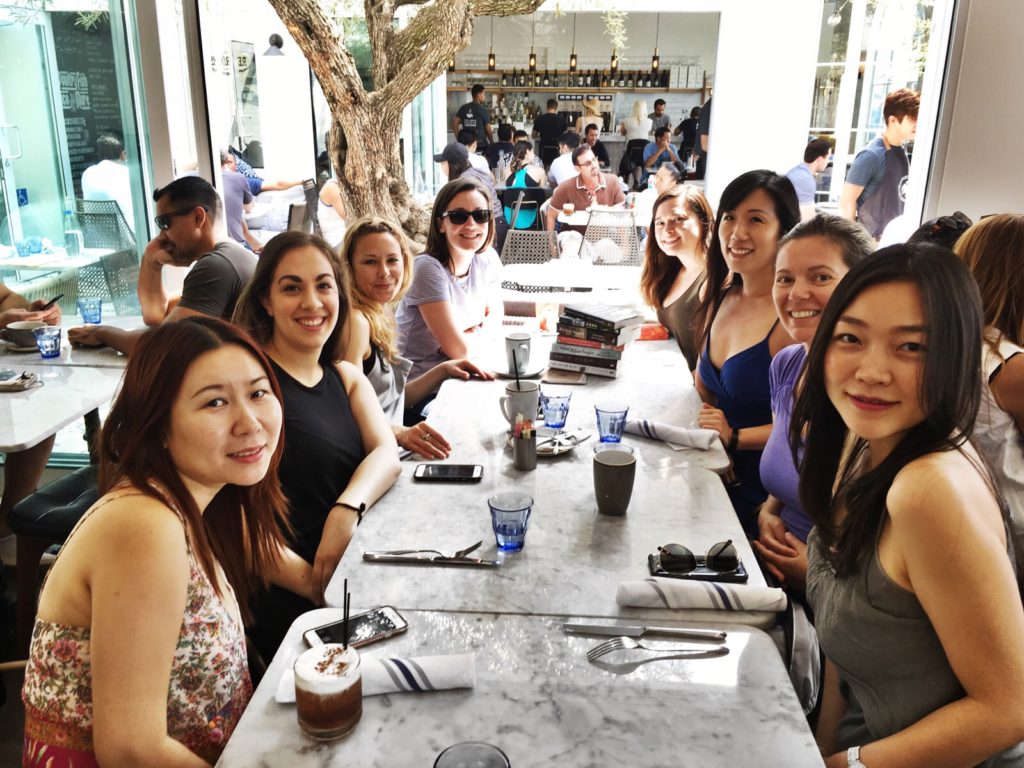
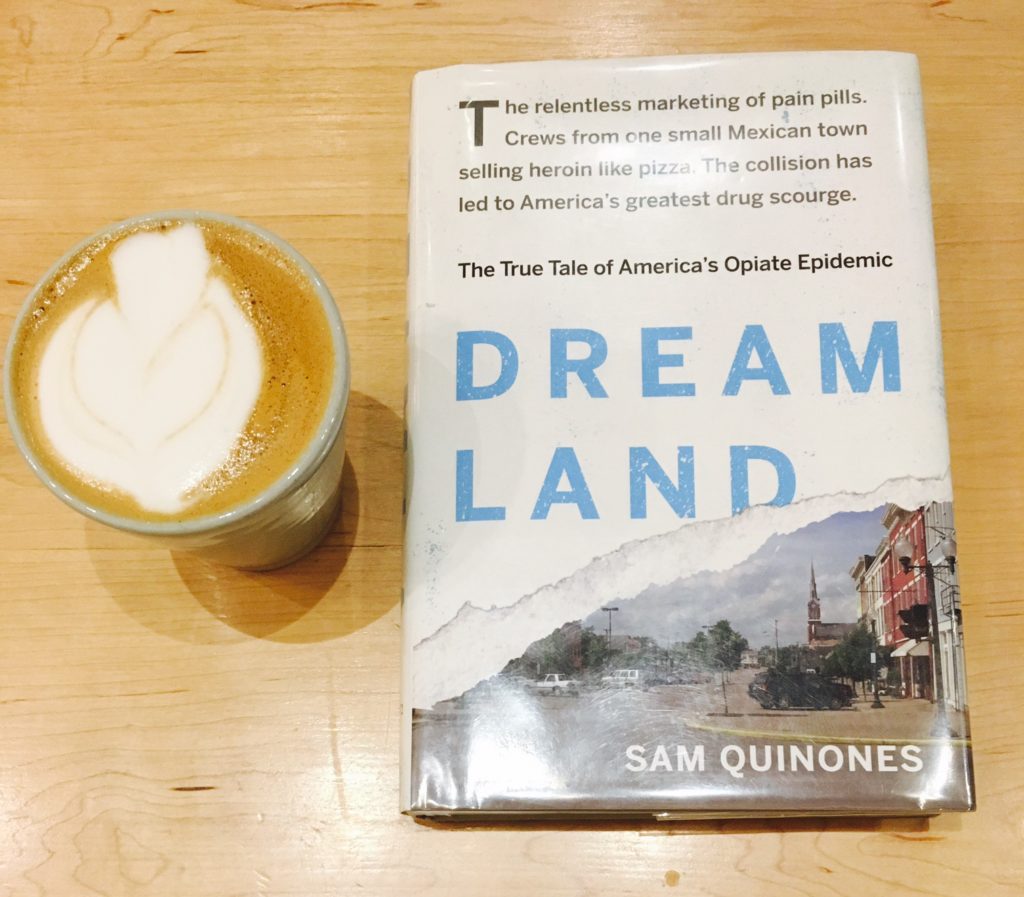
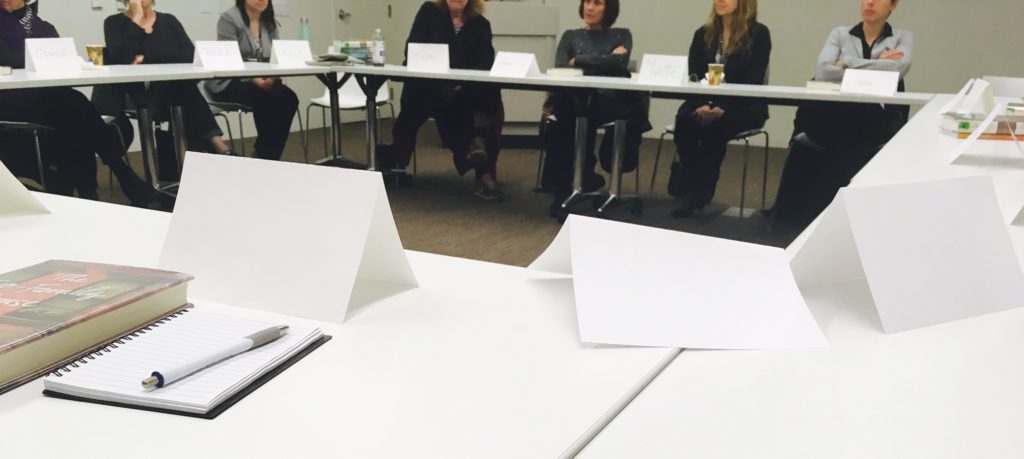
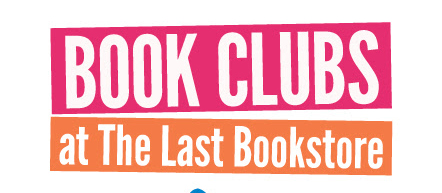
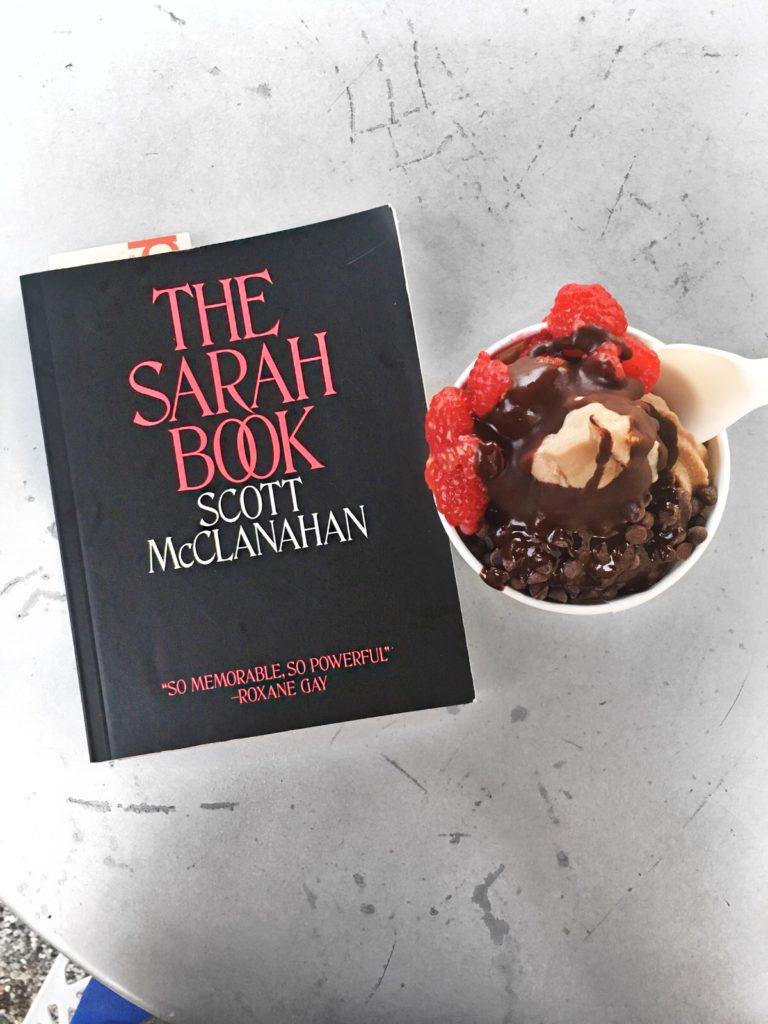
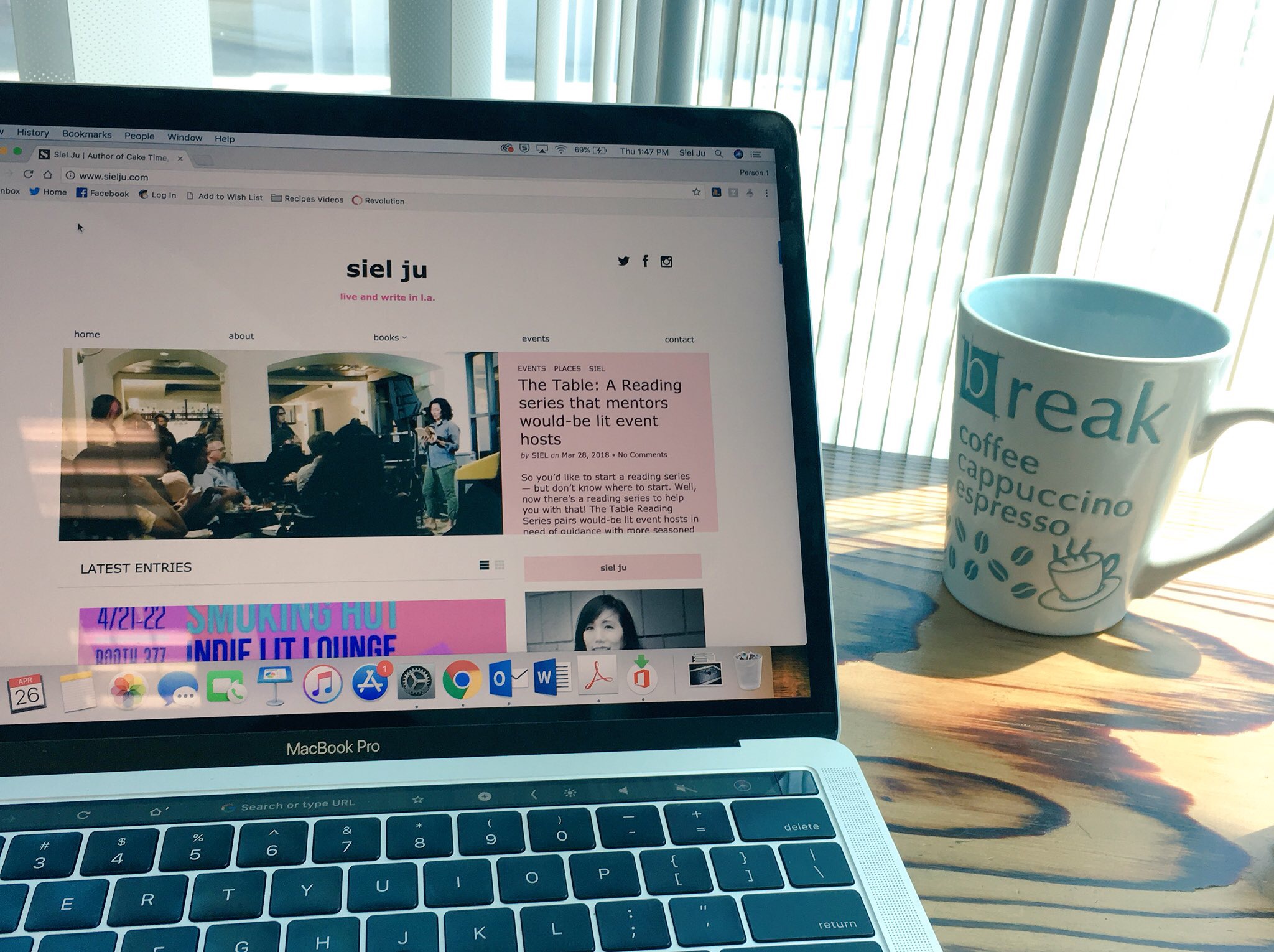
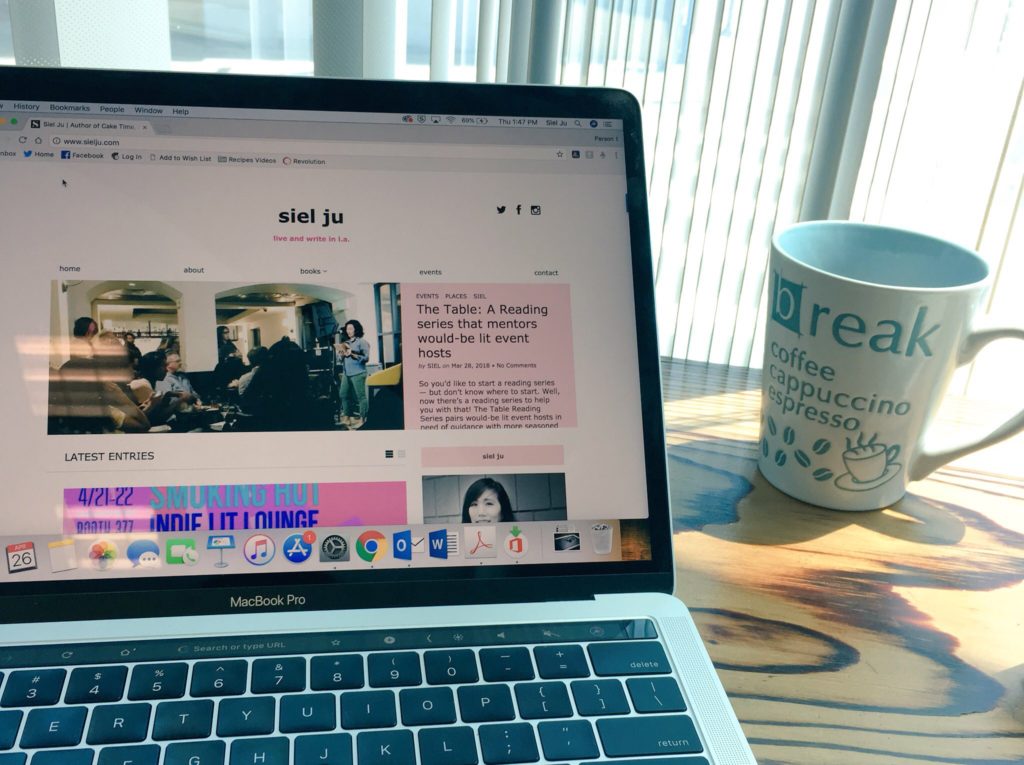
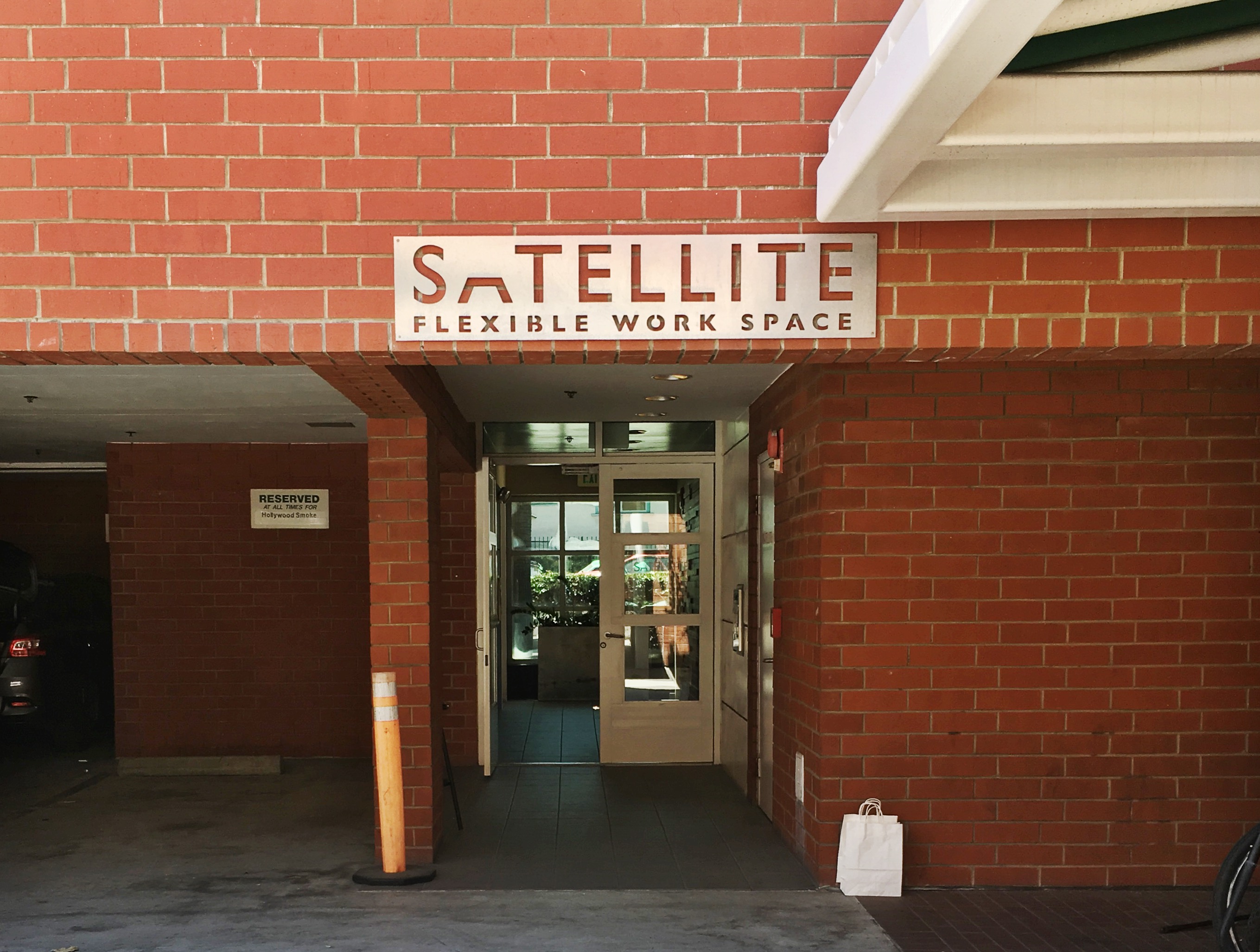
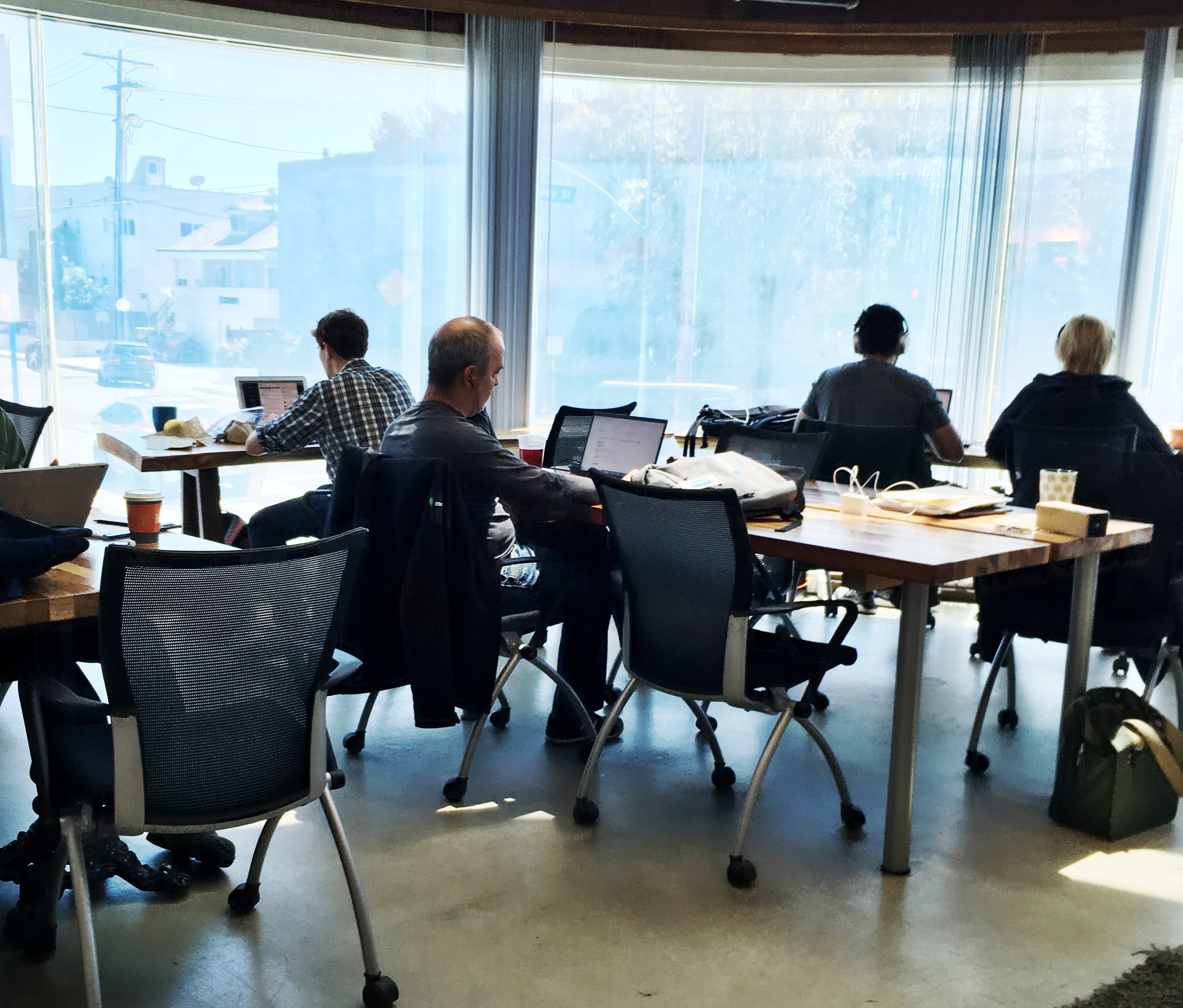
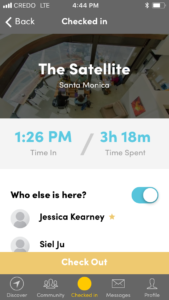 Was I productive? Well, I was about as productive as I usually am when I visit a new coffee shop. The Satellite offers complimentary tea and coffee and wasabi peas — which I had to try. Then I got a call and went to the little front nook designated for people on the phone — and hung out there a while talking about Croissant. Then some random person just brought in a free box of donuts — all different and unique flavors — so I ate a donut. On went the afternoon —
Was I productive? Well, I was about as productive as I usually am when I visit a new coffee shop. The Satellite offers complimentary tea and coffee and wasabi peas — which I had to try. Then I got a call and went to the little front nook designated for people on the phone — and hung out there a while talking about Croissant. Then some random person just brought in a free box of donuts — all different and unique flavors — so I ate a donut. On went the afternoon —